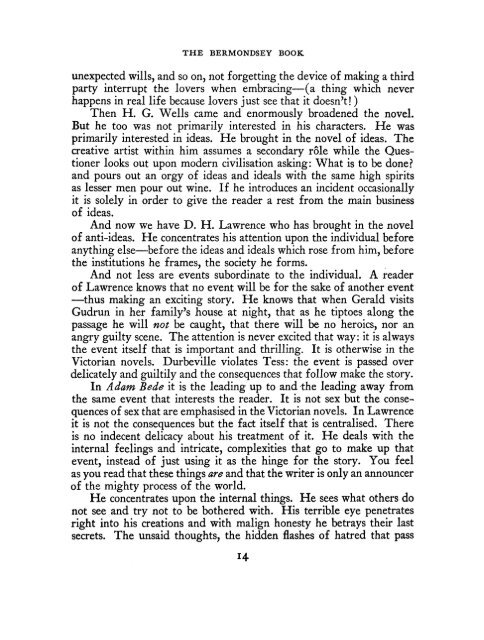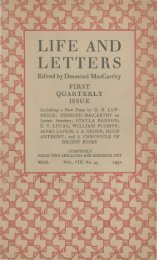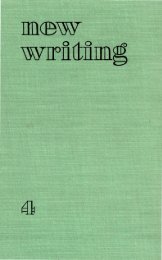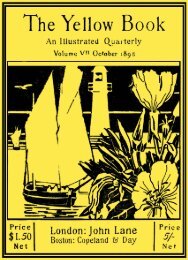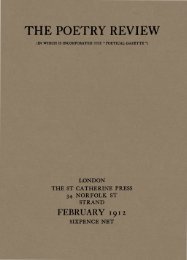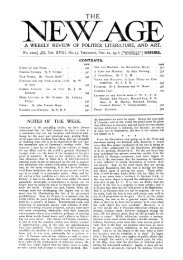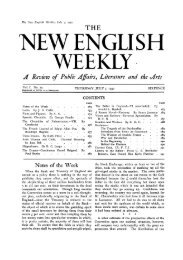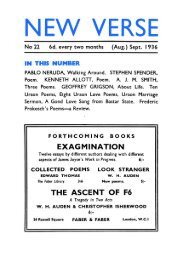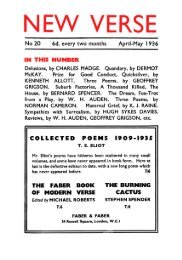Vol. VI No. 1 - Modernist Magazines Project
Vol. VI No. 1 - Modernist Magazines Project
Vol. VI No. 1 - Modernist Magazines Project
You also want an ePaper? Increase the reach of your titles
YUMPU automatically turns print PDFs into web optimized ePapers that Google loves.
THE BERMONDSEY BOOK<br />
unexpected wills, and so on, not forgetting the device of making a third<br />
party interrupt the lovers when embracing—(a thing which never<br />
happens in real life because lovers just see that it doesn't!)<br />
Then H. G. Wells came and enormously broadened the novel.<br />
But he too was not primarily interested in his characters. He was<br />
primarily interested in ideas. He brought in the novel of ideas. The<br />
creative artist within him assumes a secondary role while the Questioner<br />
looks out upon modern civilisation asking: What is to be done?<br />
and pours out an orgy of ideas and ideals with the same high spirits<br />
as lesser men pour out wine. If he introduces an incident occasionally<br />
it is solely in order to give the reader a rest from the main business<br />
of ideas.<br />
And now we have D. H. Lawrence who has brought in the novel<br />
of anti-ideas. He concentrates his attention upon the individual before<br />
anything else—before the ideas and ideals which rose from him, before<br />
the institutions he frames, the society he forms.<br />
And not less are events subordinate to the individual. A reader<br />
of Lawrence knows that no event will be for the sake of another event<br />
—thus making an exciting story. He knows that when Gerald visits<br />
Gudrun in her family's house at night, that as he tiptoes along the<br />
passage he will not be caught, that there will be no heroics, nor an<br />
angry guilty scene. The attention is never excited that way: it is always<br />
the event itself that is important and thrilling. It is otherwise in the<br />
Victorian novels. Durbeville violates Tess: the event is passed over<br />
delicately and guiltily and the consequences that follow make the story.<br />
In Adam Bede it is the leading up to and the leading away from<br />
the same event that interests the reader. It is not sex but the consequences<br />
of sex that are emphasised in the Victorian novels. In Lawrence<br />
it is not the consequences but the fact itself that is centralised. There<br />
is no indecent delicacy about his treatment of it. He deals with the<br />
internal feelings and intricate, complexities that go to make up that<br />
event, instead of just using it as the hinge for the story. You feel<br />
as you read that these things are and that the writer is only an announcer<br />
of the mighty process of the world.<br />
He concentrates upon the internal things. He sees what others do<br />
not see and try not to be bothered with. His terrible eye penetrates<br />
right into his creations and with malign honesty he betrays their last<br />
secrets. The unsaid thoughts, the hidden flashes of hatred that pass


